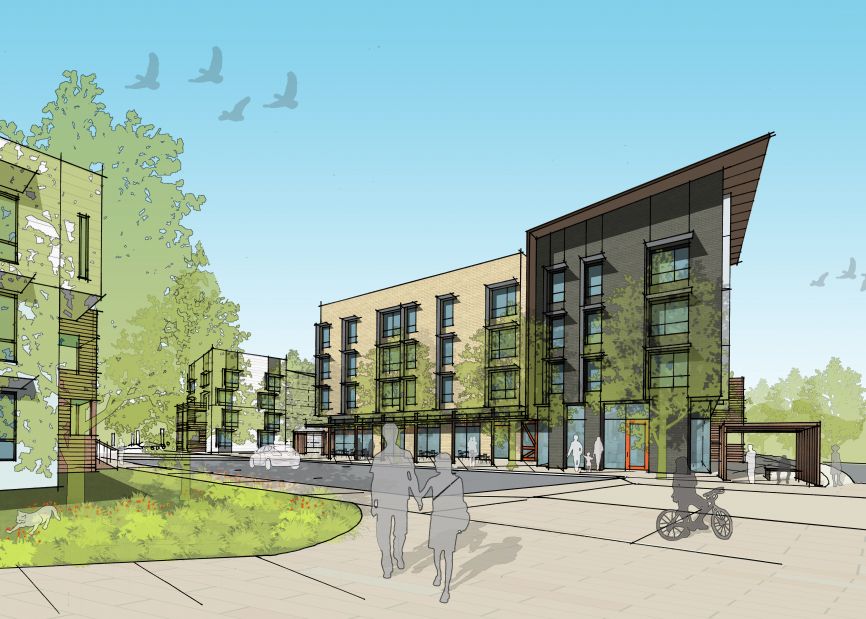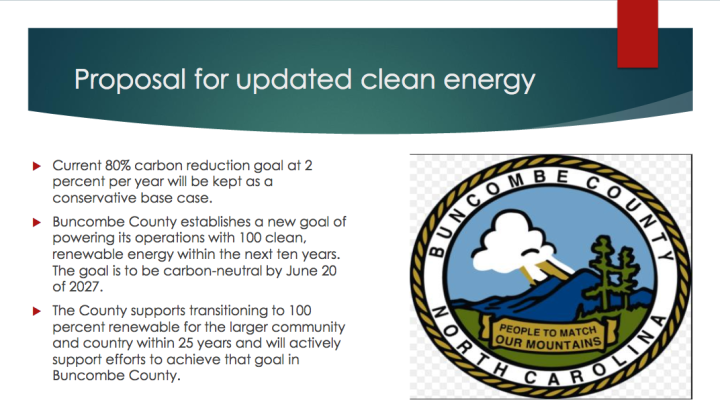The Buncombe County Board of Commissioners threw its weight behind an Asheville Housing Authority initiative during its June 20 meeting. The plan would see Lee Walker Heights redeveloped and has support from the city of Asheville but is contingent upon getting state funding as well. Commissioners also heard a presentation about having the county run completely on renewable energy by 2027.
Redevelopment partnership
Asheville’s oldest public housing development is looking for a fresh start. To that end, the Asheville Housing Authority is working toward securing money to redevelop Lee Walker Heights.
AHA Chief Operating Officer David Nash previously told commissioners that plans include replacing 96 obsolete public housing units with a new, 212-unit mixed-income development.
To do so, AHA will need an application for a Tax-Exempt Bond/Housing Tax Credit Allocation approved by the N.C. Housing Finance Agency. The organization lost that bid last year but hopes county financial support for the project will help gain approval.
Asheville City Council has pledged $4.2 million toward the redevelopment as well.
Commissioners unanimously approved a letter of support pledging $4.2 million for the project’s application, which is slated to be submitted next month. Should it be approved, the money won’t be called upon until July 2018, which would be in the county’s fiscal year 2019 budget.
Renewed effort
In 2013, commissioners approved a measure dedicating the county to reducing its carbon footprint by 80 percent. Commissioner Chair Brownie Newman is now asking the county to rely 100 percent on renewable energy by 2027.
He said that the proposed solar farm at the old Woodfin landfill could provide upward of 18 percent renewable energy and that another 28 percent might come from new policies that have yet to be audited.
The presentation was met with universal agreement, if not some cautious optimism. “I tried to do this at home, and my experience was I wasn’t able to afford it,” said Commissioner Joe Belcher, who stressed he supports renewable energy. “We’ve got to look at affordability and see the savings. 2027 might be a little aggressive. Other cities have dates further out. You’ve got to able to sustain it.”
Commissioner Mike Fryar was a bit more skeptical, stating, “Eighty percent was going to be hard; 100 percent is a dream.
“I love the Earth. I’ve been around it for a long time,” he quipped while raising concern that many cities ultimately purchase some form of coal-based fuel regardless of renewable infrastructure. But he also added, “I want to save every dime I can.”
The county did not take any action, and county staff, along with the Energy Innovation Task Force, will likely bring some tangible steps before commissioners in the coming months.
Commissioners also approved a budget for fiscal year 2018 during their meeting. You can read Xpress‘ coverage of the spending plan here.





Before you comment
The comments section is here to provide a platform for civil dialogue on the issues we face together as a local community. Xpress is committed to offering this platform for all voices, but when the tone of the discussion gets nasty or strays off topic, we believe many people choose not to participate. Xpress editors are determined to moderate comments to ensure a constructive interchange is maintained. All comments judged not to be in keeping with the spirit of civil discourse will be removed and repeat violators will be banned. See here for our terms of service. Thank you for being part of this effort to promote respectful discussion.